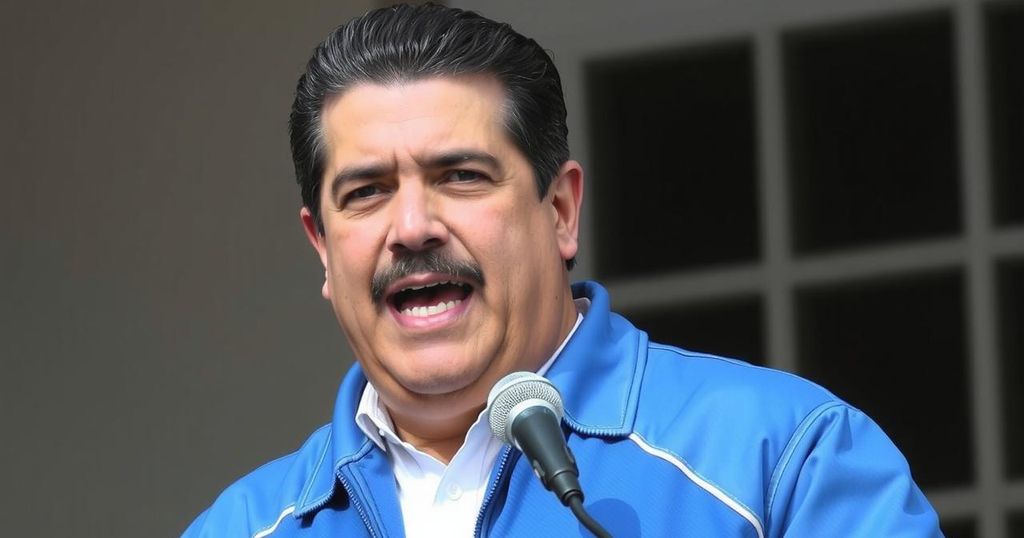Nicolás Maduro has been sworn in for a third term as President of Venezuela amid widespread accusations of electoral fraud and international condemnation. His victory in the disputed election has incited ongoing protests led by opposition figures. The U.S. continues to recognize Edmundo Gonzalez as the legitimate winner, underscoring the intense political strife facing the nation.
Nicolas Maduro was sworn in for a third consecutive term as President of Venezuela, following a disputed election that ignited controversy over alleged voter fraud claimed by his opponent, Edmundo Gonzalez. Maduro’s inauguration occurred amidst strong criticism from both domestic opposition groups and international entities such as the United States, which continues to recognize Gonzalez as the legitimate winner of the recent electoral process. During his inauguration, Maduro vowed to uphold the nation’s laws and promote a period characterized by peace and prosperity, stating, “May this new presidential term be a period of peace, of prosperity, of equality and the new democracy.”
Maduro’s administration, which commenced after the death of Hugo Chavez in 2013, has consistently been accused of authoritarianism and has faced significant challenges, including sustained economic decline and political unrest. Several notable opposition figures have been barred from electoral competition, resulting in previous confrontations post-elections. Despite claims of victory in the July vote where he purportedly received 51 percent of the ballots, the opposition asserted that the election was marred by a lack of transparency, pointing to their published tallies indicating a decisive win for Gonzalez.
Following the election results, the country saw widespread protests against Maduro’s government, leading to violent crackdowns and numerous arrests. Opposition leader Maria Corina Machado, who has emerged as a vocal critic of Maduro’s rule, led recent demonstrations but was briefly detained during a protest. The US administration, reinforcing its stance, has labelled Gonzalez the “president-elect” and expressed grave concerns regarding the repression of peaceful protests in Venezuela.
Maduro’s sweeping victory has not only led to increased scrutiny from regional leaders but has also galvanized ongoing demonstrations by opposition supporters. An estimated 2,000 arrests were reported during the protests, highlighting the contentious atmosphere surrounding his presidency. Despite calls for further protests, the opposition faces challenges, including accusations against its leaders of conspiring with foreign nations.
The political landscape in Venezuela has been tumultuous since Nicolás Maduro succeeded Hugo Chávez in 2013. His tenure has been characterized by significant economic hardship, widespread poverty, and allegations of human rights violations, including the suppression of political dissent. The July elections, viewed by many as an opportunity for the opposition to reclaim power, were met with accusations of voter manipulation. The United States and other countries have imposed sanctions on Maduro’s government in response to these allegations, recognizing opposition leader Edmundo Gonzalez as the rightful election victor. Amidst a backdrop of decrepit infrastructure and rampant inflation, the social unrest in Venezuela has been exacerbated by the government’s hostility towards dissent, oftentimes manifesting in violent crackdowns.
In conclusion, Nicolás Maduro’s inauguration for a third term signifies the continued division in Venezuelan politics, marked by allegations of electoral fraud and widespread dissent. The opposition, bolstered by international support, continues to challenge Maduro’s legitimacy, while claims of repression and human rights violations tarnish his administration. As civil unrest persists, the path to stability in Venezuela remains fraught with challenges, and the global community closely monitors the developments in this beleaguered nation.
Original Source: www.aljazeera.com






